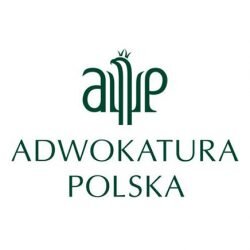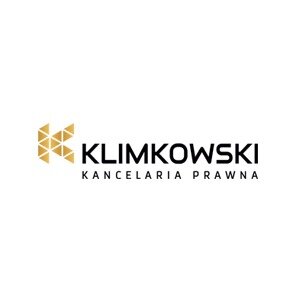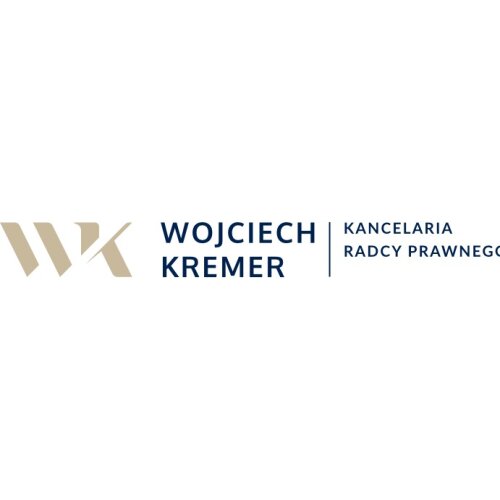Best Sanctions & Export Controls Lawyers in Poland
Share your needs with us, get contacted by law firms.
Free. Takes 2 min.
Or refine your search by selecting a city:
List of the best lawyers in Poland
About Sanctions & Export Controls Law in Poland
Sanctions and export controls are legal frameworks that regulate the movement of goods, technologies, services, and funds across borders. In Poland, these laws are essential for ensuring compliance with international obligations and for protecting national security and foreign policy interests. Polish sanctions and export controls are shaped by the country’s membership in the European Union, United Nations, and other international agreements. They include rules about which entities or countries Polish businesses can trade with, restrictions on the export of certain goods or technologies, and requirements relating to the financial sector.
Why You May Need a Lawyer
Dealing with sanctions and export controls regulations can be complicated, especially for businesses engaged in international trade or for individuals facing restrictions. You may need a lawyer in the following situations:
- Conducting business with foreign partners in countries subject to embargoes or sanctions
- Exporting dual-use goods, sensitive technologies, or defense-related items
- Receiving requests from government authorities regarding sanctions compliance
- Facing investigations or potential penalties for alleged violations
- Interpreting complex EU and Polish regulations on trade restrictions
- Structuring cross-border transactions in accordance with applicable laws
- Applying for licenses or permits for controlled exports
- Screening customers, suppliers, or financial transactions against sanctions lists
In all these cases, legal advice helps avoid costly mistakes, ensures compliance, and can protect against significant penalties.
Local Laws Overview
Poland’s sanctions and export controls regime is closely aligned with European Union law. Key aspects include:
- Poland enforces EU and UN sanctions, including embargoes, asset freezes, and travel bans
- Polish law restricts the export, import, and transit of goods and technologies listed as controlled, especially items with potential military or dual use
- Exporters may need to obtain licenses from Polish authorities, such as the Ministry of Development and Technology or the Internal Security Agency
- Financial institutions must monitor transactions to ensure they are not in violation of sanctions
- Violation of sanctions and export controls can result in administrative penalties, commercial restrictions, or criminal liability
- Certain sectors, such as oil, gas, and defense, have additional, specific obligations under Polish and EU law
- Regular updates to sanctions lists and controls require ongoing monitoring by businesses and organizations
Staying compliant means understanding both Polish and EU rules and keeping up to date with any changes or new measures.
Frequently Asked Questions
What are sanctions and export controls?
Sanctions are legal measures that restrict trade or relations with specific countries, entities, or individuals to achieve foreign policy or security objectives. Export controls regulate the transfer of specific goods, technologies, or services to ensure they are not used in activities that threaten security or violate international agreements.
Who enforces sanctions in Poland?
Sanctions in Poland are enforced by various governmental bodies, notably the Ministry of Foreign Affairs, the Ministry of Development and Technology, the Internal Security Agency, and the General Inspector of Financial Information.
Do EU sanctions automatically apply in Poland?
Yes, as an EU Member State, Poland is obliged to implement and enforce EU sanctions regimes directly. Polish authorities can also enforce additional national measures where applicable.
Which goods are subject to export controls in Poland?
Goods subject to export controls include military items, dual-use goods (civil goods with potential military applications), certain chemicals, advanced technologies, and sensitive materials. The lists of controlled items are set by EU regulations and Polish law.
How do I know if I need a license to export goods?
If your goods, technology, or services appear on controlled lists or are destined for sanctioned jurisdictions or entities, you are likely to need a license. Consulting with a lawyer or relevant authority is recommended to confirm your obligations.
What are the penalties for violation?
Penalties range from administrative fines to criminal prosecution, including imprisonment for serious breaches. Companies can also suffer reputational damage, lose export privileges, or face business restrictions.
How often do sanctions and controls change?
Sanctions regimes are subject to frequent change based on international developments. Export control lists and requirements are updated regularly. Businesses involved in international trade must monitor these changes closely.
Are services and financial transactions also regulated?
Yes, sanctions and export controls apply not only to goods but also to the provision of certain services, transfer of technology (including intangible transfers), and financial transactions involving sanctioned parties.
How can I check if a partner or customer is subject to sanctions?
Screening tools are available and official lists are published by the EU and United Nations. In Poland, the Ministry of Foreign Affairs provides relevant updates. Legal professionals can assist with comprehensive due diligence.
Is legal assistance necessary, or can I manage compliance myself?
While some businesses can manage basic compliance, legal complexities, evolving regulations, and the risk of severe penalties make professional legal advice highly advisable, especially for companies operating in multiple jurisdictions.
Additional Resources
Several governmental bodies and organizations provide information and support regarding sanctions and export controls in Poland:
- Ministry of Foreign Affairs - for information on Polish implementation of EU and UN sanctions
- Ministry of Development and Technology - for export control guidance and licensing
- Internal Security Agency - for issues related to national security and trade restrictions
- General Inspector of Financial Information - for financial sector compliance and suspicious transaction reporting
- Chambers of Commerce and trade associations - for updates and training
- Legal and compliance firms specializing in international trade regulations
These resources can help you stay informed and compliant, but they do not substitute for tailored legal advice.
Next Steps
If you believe you need legal assistance regarding sanctions or export controls in Poland, consider the following steps:
- Identify your specific needs, such as transaction review, compliance program development, or licensing applications
- Gather relevant information about your business activities, products, customers, and partners
- Contact a law firm or lawyer with expertise in Polish and EU sanctions and export controls
- Request an initial consultation to discuss your situation and determine how best to proceed
- Stay proactive in monitoring updates to applicable regulations
Working with a qualified legal professional ensures that you meet your obligations and avoid costly legal risks in this highly regulated field.
Lawzana helps you find the best lawyers and law firms in Poland through a curated and pre-screened list of qualified legal professionals. Our platform offers rankings and detailed profiles of attorneys and law firms, allowing you to compare based on practice areas, including Sanctions & Export Controls, experience, and client feedback.
Each profile includes a description of the firm's areas of practice, client reviews, team members and partners, year of establishment, spoken languages, office locations, contact information, social media presence, and any published articles or resources. Most firms on our platform speak English and are experienced in both local and international legal matters.
Get a quote from top-rated law firms in Poland — quickly, securely, and without unnecessary hassle.
Disclaimer:
The information provided on this page is for general informational purposes only and does not constitute legal advice. While we strive to ensure the accuracy and relevance of the content, legal information may change over time, and interpretations of the law can vary. You should always consult with a qualified legal professional for advice specific to your situation.
We disclaim all liability for actions taken or not taken based on the content of this page. If you believe any information is incorrect or outdated, please contact us, and we will review and update it where appropriate.
Browse sanctions & export controls law firms by city in Poland
Refine your search by selecting a city.
















